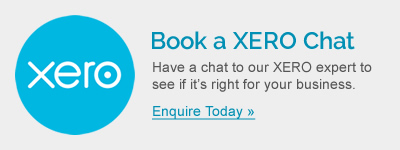What is on the ATO Focus for SMSF in 2023
What will the ATO be looking for in SMSF in 2023?
As of 30 June 2022, there were 603,432 self-managed superannuation funds (or “SMSFs,” according to the most recent yearly statistics; this is a 4.4% increase from the 2021 year). Moreover, SMSFs hold about 26.2% of the assets in the superannuation industry. By “Fund Type,” this is the second-highest asset holding; about 32.5% of the asset is invested in industry funds. Check out the “SMSF annual statistical report June 2022” document, which is also accessible through data.gov.au and was published in February 2023.

ATO Compliance
It is not surprising that the ATO is focusing on SMSFs given their increased popularity and significant asset holdings. In this context, Justin Micale, Assistant Commissioner for SMSFs Risk and Strategy, has listed the SMSF-related issues that are on the ATO’s radar. For more information, see the ATO publication ‘SMSF compliance – What’s on the regulator’s radar?’ (QC 70682).
SMSF annual returns are an important source of ATO compliance work. In order to determine whether individuals with connections to private wealth groups and small enterprises exhibit different behaviours, the ATO also uses demographic analysis to identify these members. For instance, according to ATO research, almost 45% of SMSFs are connected to a small business. Furthermore, compared to funds with members connected to other segments, these funds have a higher frequency of non-lodgment and loans to related parties.
In light of the aforementioned, the table below lists a few crucial concerns that the ATO is now monitoring and that SMSF trustees (and their advisers) need to be aware of for the 2023 income year.
Key Issues and ATO’s Focus
In light of the aforementioned, the table below lists a few crucial concerns that the ATO is now monitoring and that SMSF trustees (and their advisers) need to be aware of for the 2023 income year.
|
KEY ISSUE |
ATO FOCUS |
|
1. Non-lodgment of SMSF annual returns. Even if their fund is in the retirement phase, trustees must file an annual SMSF return. |
The ATO may see from the SMSF annual return whether the fund is meeting its legal and tax requirements as well as the members’ superannuation balances. Non-lodgment could potentially point to more serious compliance problems. As an illustration, the ATO has noted situations in which formerly complying SMSFs stop filing because they have an unrepaired breach and want to avoid being discovered. Furthermore, SuperFund LookUp may remove an SMSF’s details if its annual return is more than two weeks overdue. This limits the employer contributions and rollovers the fund may accept. The ATO is also concentrating on tax advisors and auditors who have unpaid invoices for their own SMSFs. |
|
2. Regulatory contraventions. In comparison to the 2021 income year, the number of SMSFs with an ACR (Auditor/Actuary Contravention Report) filed increased by almost 3.5%. Moreover, there was a 6.3% increase in reported breaches. |
The ATO is especially concerned with violations involving unlawful early access (refer below). Another frequent worry is when group structures are utilised to transfer income or assets to an SMSF in an effort to get around the contribution limits and other tax and regulatory regulations. This could happen if related-party assets are undervalued and revenue from property developments, unit trust distributions, private business dividends, and PSI is improperly directed into an SMSF. When a problem is found with a client who is an SMSF, a rectification plan needs to be created. It is advisable to promote voluntary disclosure of any significant regulatory violations that cannot be corrected. |
|
3. Approved SMSF auditors – adequacy and independence. SMSF auditors play a crucial role in confirming the authenticity, correctness, and compliance with super rules of an SMSF’s financial accounts. |
The ATO is continuing to focus on behaviours including audit adequacy, internal audits, and reciprocal auditing arrangements in its efforts to identify higher risk corporations. Other common issues include not gathering enough relevant audit evidence, evaluating the audit evidence insufficiently, and using the wrong paperwork to back up the results. |
|
4. Misusing the SMSF auditor number. This happens when a fund’s auditor is misrepresented as an accredited SMSF auditor who either didn’t perform the audit or didn’t perform one at all. |
Before submitting the 2023 SMSF annual return, make sure the auditor’s details (as indicated under Item 6 – SMSF auditor of the annual return) agree with the audit report to assist reduce the risks associated with this issue. Included in this are information such the SMSF auditor number, the auditor’s name, and the date the audit was finished. |
|
5. Unauthorised early access. Members are not permitted to access their superannuation funds until they have satisfied a condition of release (e.g., turning age 65). |
The ATO is focusing on SMSF trustees who used the bank account of their fund to pay for things like company debts, vacations, renovations, and new cars. Early access is typically reported as a loan or a violation of the payment rules in an ACR to the ATO. |
Contact us at Success Accounting Group to learn if self-managed super funds are right for you.
Our services include:
- Fund Establishment
- Fund Annual Returns
- Advice & Assistance to Comply with Superannuation Industry Legislation
- Financial and Audit Compliance
- Superannuation Audits

About Lan Nguyen
Lan is the Founder and Chief Strategist at Success Accounting Group, Melbourne based CA firm. In a matter of short 8 years she has built up a reputable Chartered accounting firm with 3 offices and a team of 6 professional accountants and support team members. Her mission is to provide Innovative and Strategic Financial advice to help her customers make smarter financial decisions today for a brighter future.
Success Accounting Group is for established business owners who would like help to grow a sustained business. As a business owner you understand what drives your business success with our accounting team taking care of the rest.




